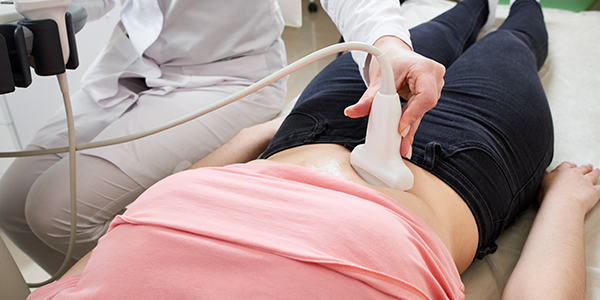Unraveling Diverticular Disease Specialist Questions and Answers
Embark on a journey of discovery as we delve into the complexities of diverticular disease under the guidance of our specialized experts. In this comprehensive Q&A, gain invaluable insights into this gastrointestinal condition, its causes, symptoms, and available treatment options. Our team of diverticular disease specialists unravels the mysteries surrounding this ailment, empowering you with knowledge to make informed decisions about your health and well-being.

Welcome to our in-depth exploration of diverticular disease, where we unravel the complexities of this gastrointestinal condition under the expertise of our specialized specialists. In this article, we will provide valuable insights, expert advice, and the latest treatment options to help you better understand diverticular disease and its impact on your health. Our team is dedicated to empowering you with knowledge, allowing you to make informed decisions for effective disease management and improved well-being.
Understanding Diverticular Disease
Diverticular disease is a common gastrointestinal condition characterized by the presence of small pouches (diverticula) in the walls of the colon. These pouches can become inflamed or infected, leading to diverticulitis, a more severe form of the disease. While the exact cause of diverticular disease is not fully understood, it is commonly associated with a low-fiber diet and increasing age.
Recognizing Symptoms
Diverticular disease can present with various symptoms, ranging from mild to severe. Common signs include abdominal pain, bloating, changes in bowel habits, and rectal bleeding. However, some individuals with diverticular disease may remain asymptomatic, making regular screenings and early detection vital for proper management.
Diagnostic Approach
To diagnose diverticular disease, our specialized experts utilize various diagnostic tools, including physical examinations, medical history assessments, imaging studies (such as colonoscopy or CT scan), and blood tests. Accurate diagnosis allows for tailored treatment plans, promoting better outcomes.
Personalized Treatment Strategies
Our team believes in a patient-centered approach, developing personalized treatment strategies based on the severity of diverticular disease and individual health needs. Mild cases may be managed through dietary modifications, including increased fiber intake and hydration, along with the use of over-the-counter pain relievers. For more severe cases, antibiotic therapy and rest to heal the inflamed diverticula may be prescribed.
Lifestyle Modifications
In addition to medical treatment, lifestyle modifications play a crucial role in managing diverticular disease. Our experts emphasize the importance of adopting a high-fiber diet, engaging in regular physical activity, managing stress levels, and avoiding certain trigger foods to prevent diverticulitis flare-ups.
Conclusion
Unraveling Diverticular Disease Specialist Questions and Answers offers valuable insights and expert guidance to help you navigate the challenges of diverticular disease effectively. Our specialized team is committed to improving your well-being through personalized treatment strategies, lifestyle modifications, and proactive management of this gastrointestinal condition. Empowered with knowledge, you can embrace a healthier lifestyle and achieve better control over diverticular disease for a more fulfilling life.
Frequently Asked Questions (FAQs)
What are the common symptoms of diverticular disease?
Symptoms of diverticular disease may include abdominal pain, bloating, changes in bowel habits, rectal bleeding, and discomfort. However, some individuals may not experience any symptoms, making regular screenings important.
How is diverticular disease diagnosed?
Diagnosis typically involves a combination of physical examinations, medical history assessments, imaging studies (such as colonoscopy or CT scan), and blood tests to confirm diverticular disease.
Can diverticular disease be managed with dietary changes alone?
In mild cases, dietary changes such as increasing fiber intake and staying hydrated may help manage symptoms. However, a personalized treatment plan is essential for more severe cases.
What treatment options are available for diverticular disease?
Treatment strategies vary based on the severity of the condition. Mild cases may be managed with dietary modifications and over-the-counter pain relievers, while more severe cases may require antibiotic therapy and rest.
Is diverticular disease preventable?
While some risk factors, like age, cannot be changed, adopting a high-fiber diet, engaging in regular physical activity, and managing stress levels can help reduce the risk of developing diverticular disease or prevent flare-ups.
When should I seek medical attention for diverticular disease?
If you experience severe abdominal pain, persistent rectal bleeding, fever, or other concerning symptoms, it is crucial to seek immediate medical attention.
Can diverticular disease lead to complications?
In some cases, diverticular disease may lead to complications like abscesses, fistulas, or bowel obstructions. Timely management and regular follow-up care can help prevent or address potential complications.
